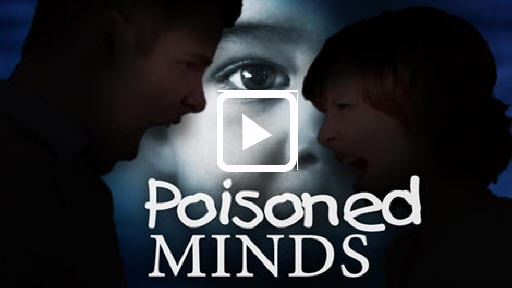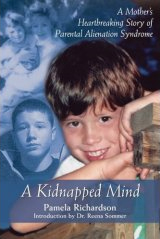Parental Alienation - Myths, Realities & Uncertainties: A Canadian Study, 1989-2008
Summary, May 12, 2009

By Nicholas Bala, Suzanne Hunt & Carrie McCarney
Faculty of Law, Queen's University, Kingston, Ontario, Canada
The paper is expected to be completed and published in early 2010.
About Nicholas Bala
Nicholas Bala B.A. (Toronto), LL.B. (Queen's), LL.M. (Harvard)
is a professor at Queen's University - Faculty of
Law, in Kingston, Ontario, Canada, specializing in Family and Children's
Law.
As of May, 2009, his work has been cited by all levels of court in Canada , including 27 times by the Supreme Court of Canada.
Alienation cases have been receiving a great deal of public and professional attention in the past few months in Canada. As with so many issues in family law, there are two competing, gendered narratives offered to explain these cases. Men's rights activists claim that mothers alienate children from their fathers as a way of seeking revenge for separation, and argue that judges are gender-biased against fathers in these cases. Feminists tend to dismiss alienation as a fabrication of abusive fathers who are trying to force contact with children who are frightened of them and to control the lives of their abused former partners. While there is some validity to both of these narratives, each also has significant mythical elements. The reality of these cases is often highly complex, with both fathers and mothers bearing significant responsibility for the situation.
Many high conflict separations are characterized by both parents denigrating their former partners and failing to support their children's relationships with the other parent. While all children suffer from such parental behaviour, only a minority of children become "alienated" from a parent as a result of it. When a child resists visits with a parent, all children in the family and both parents must be assessed. Some cases involve emotionally abusive "pathological alienation," caused by the conduct of an alienating parent and resulting in a child having negative beliefs and feelings (such as anger, hatred or fear) that are not consistent with the child's actual experience with the rejected parent. In other cases, however, the child may be "justifiably estranged" due to conduct of the rejected parent, such as abuse or poor parenting. In some cases a child independently decides to disengage with a parent, perhaps due to tensions with a step parent.
We are undertaking a study of reported Canadian cases between 1989 and 2008 dealing with claims of parental alienation. Key findings include:
Some of the key findings of the study:
- A total of 145 cases were found in this period in which the court made a decision about whether or not there was "parental alienation", with 18/34 in 1989-1998 having a finding of alienation, and 71/111 in 1999-2008 having a finding of alienation. Thus there was a significant increase over time in the number of cases raising the issue of parental alienation and in the number of cases in which there were findings of alienation, though the increase in the rate of findings (53% to 64%) was not statistically significant.
- Although courts continue to use the concept of "parental alienation," starting in 2005, Canadian judges began to recognize that the issue of whether this is a "syndrome" is controversial, and that mental health professionals should resolve this issue, not judges.
- Mothers are twice as likely as fathers to alienate children from the other parent, but this reflects the fact that mothers are more likely to have custody or primary care of their children; in only 2 out of 89 cases was a parent with only access able to alienate a child from the other parent.
- Fathers made more than three times as many unsubstantiated claims of parental alienation as mothers, but this too reflects the fact that claims of alienation (substantiated and unsubstantiated) are usually made by access parents, who are usually fathers.
- In close to half the cases in which the court declined to make a finding of alienation, it found that the child was understandably estranged from the rejected parent due to abuse or poor parenting; in about one quarter of the unsubstantiated cases the court found that the child was not "alienated" from the other parent, but simply wanted less contact. In 11 of the 56 cases where an unsubstantiated, the court declined to order access of a parent who had made a claim unsubstantiated claim of alienation; these were mainly cases of justified estrangement, where there concerns about the safety or welfare of the child in the care of that parent.
- Court-appointed mental health experts testified in 83% of these cases, and if they expressed a clear opinion about whether or not there was alienation, the court agreed in over 90% of the cases.
- Party-retained experts testified in less than a fifth of cases; judges are much less inclined to agree with these experts; in only 2 cases did the court prefer the opinion of a privately-retained expert to that of a court-appointed expert about whether alienation occurred.
- Where the court found parental alienation, the most common response was to vary custody to either give the rejected parent sole (47/89=53%) or joint custody(14/89=16%); whether the father or the mother was found to be the alienating parent, there was not a statistically significant difference in the rate of variation of custody.
- In more severe cases, courts may both change custody and suspend contact with the alienating parent; this occurred in 9 out of 89 cases (10%).
The court ordered counselling or therapeutic intervention in 37 of 145 cases in this study (26%). These orders were made both in cases in which alienation was found, and in cases in which the court rejected the claim of alienation. The most common orders were for court ordered counselling for the children (19 cases) and for the entire family (12 cases).
Thus, while there are gender differences in both rates of alienating children (mainly by mothers) and in making unsubstantiated claims of alienation (mainly by fathers), this reflects the fact that alienation is almost always done by the parent with custody or primary care. There is no evidence of gender bias in judicial responses to these cases.
Changes should be made in the family justice system to ensure that alienation cases are addressed in a way that better meets the needs of children, including:
- Education programs for parents on the effects of separation on children;
- Early case management by one judge of high conflict family law cases;
- Early assessment by a court-appointed mental health professional;
- Detailed court orders that are effectively enforced;
- Prevention of delay in resolving cases where alienation is alleged; and
- Provision of effective counselling and support services for children and parents involved in high conflict separations and cases where alienation issues arise.
Although there is clearly a need for more research about the best methods of intervention in alienation cases, there is a growing body of literature that documents the long-term emotional harm to child from being alienated from a parent.







